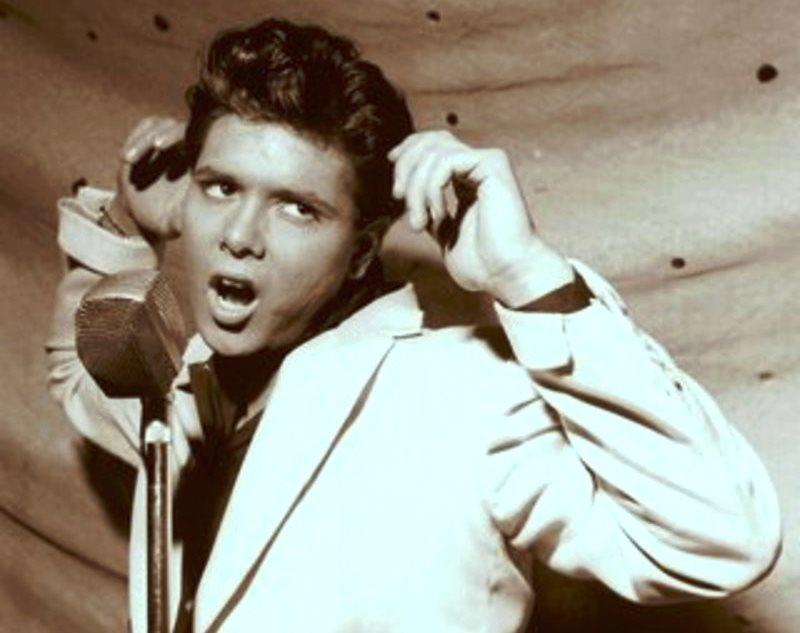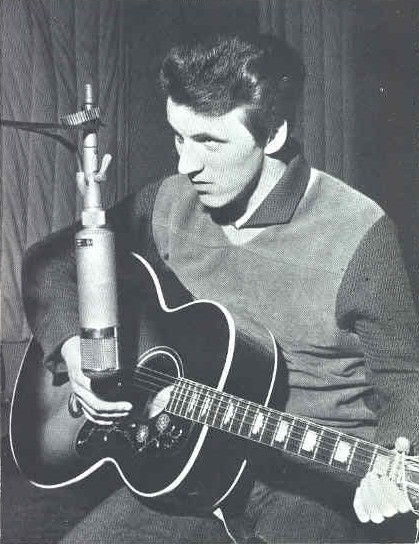Rock ‘n’ Roll Britannia, BBC Four | reviews, news & interviews
Rock ‘n’ Roll Britannia, BBC Four
Rock ‘n’ Roll Britannia, BBC Four
The entertaining tale of the protracted birth of a British rock scene which took America on at its own game

From being “a strange facsimile of the original” to generating the “first British record made by people who are 100 per cent convinced that they are doing the right thing”, Rock ‘n’ Roll Britannia breezily mapped the protracted birth of a British rock scene which could take America on at its own game. As Cliff Richard put it, what was created was “different enough to become European.
That the programme tackled this familiar story with a freshness and none of the expected smirking at the early efforts of Britain to grapple with what was drifting in from America was remarkable enough. And that it also did so without a raft of gee-whiz talking heads with little of relevance to offer on the matter at hand (see last week’s largely facile BBC Four offering Queens of Jazz: the Joy and Pain of the Jazz Divas) was also cause for celebration. Rock ‘n’ Roll Britannia was a treat.
The money men saw rock ‘n’ roll as a flash in the pan to be replaced by calypso
The earliest footage disinterred of something British that could be described as rock ‘n’ roll was of The Southlanders, a black vocal quartet who had hooked up during World War Two while in the Royal Air Force. Returning to Britain from Jamaica in 1953, they signed with Parlophone and released a string of singles which included some novelties (the group's Harry Wilmot was father to TV’s Gary Wilmot). The Southlanders weren’t going to inspire a wannabe Elvis – especially as the BBC opposed “spurious Americanisation”. The hardly hep Tony Crombie & his Rockets, the first British outfit to declare themselves as playing rock ‘n’ roll, were scarcely role models either. In reality, they were jazzers trying on a new trend.
Rock ‘n’ Roll Britannia caught showbiz incorporating America’s latest export into a musical palette encompassing whatever was flavour of the moment. As the author Peter Doggett pointed out, the money men saw rock ‘n’ roll as a flash in the pan to be replaced by calypso. The money men were wrong. The new music “wasn’t Doris Day,” said a twinkling Joe Brown.
Tommy Steele’s arrival in 1956 – despite a great clip of him stuttering through “Rock with the Caveman” – was a false dawn. Variety beckoned. Steele was missing from the programme, but alongside Brown and Cliff commentary came from Marty Wilde, Vince Eager, The Shadows' magisterial Bruce Welch (pictured below), drummer Clem Cattini, members of the pre-Beatles skiffle band The Quarrymen and more. Although voices weren’t missed (an appearance from Paul McCartney would've been nice), there were hints that history, for some, isn’t entirely rose tinted. Cliff was, at least initially, defensive and Brown honest (and funny) on his trepidation at encountering Gene Vincent in 1960.
As entertainingly confirmed here, with little contemporary help from the BBC and some from commercial TV, it did take a long time for Britain to come up with the goods after Bill Haley and then Elvis lit the touch paper. Cliff’s “Move It” was issued in 1958, and Vince Taylor’s “Brand New Cadillac” in 1959. Johnny Kidd & the Pirates’ “Shakin' All Over (that “100 per cent” record) and Billy Fury’s self-penned Sound of Fury were both from 1960.
 Some items could or should have been mentioned in passing: the rise of a music made by and for youth was backdropped against conscription still being in force; rock ‘n’ roll had a ready-made audience in British youths already following the Edwardian fashion trend (around from the early Fifties) and that the Fender guitar held aloft by Welch was actually bought by Cliff for his fellow Shadow Hank Marvin (Welch does own it now though). Also somewhat jarring was accompanying Cliff on screen with Handel’s “Zadok the Priest”, the music heard at a Royal Coronation.
Some items could or should have been mentioned in passing: the rise of a music made by and for youth was backdropped against conscription still being in force; rock ‘n’ roll had a ready-made audience in British youths already following the Edwardian fashion trend (around from the early Fifties) and that the Fender guitar held aloft by Welch was actually bought by Cliff for his fellow Shadow Hank Marvin (Welch does own it now though). Also somewhat jarring was accompanying Cliff on screen with Handel’s “Zadok the Priest”, the music heard at a Royal Coronation.
The lasting legacy though wasn’t the fabulous “Hoots Mon” by Lord Rockingham’s XI or most of the records released back then, but the inspiration the era gave to aspiring rockers. It wasn’t just the nascent Beatles. A teenage Jimmy Page was seen skiffling away, after which he declared “I want to do biological research.” With Led Zeppelin, perhaps he achieved that ambition.
Watch Cliff Richard & the Shadows perform "Move it": guitarist Hank Marvin (in glasses) with that Fender Stratocaster
Add comment
The future of Arts Journalism
You can stop theartsdesk.com closing!
We urgently need financing to survive. Our fundraising drive has thus far raised £49,000 but we need to reach £100,000 or we will be forced to close. Please contribute here: https://gofund.me/c3f6033d
And if you can forward this information to anyone who might assist, we’d be grateful.

Subscribe to theartsdesk.com
Thank you for continuing to read our work on theartsdesk.com. For unlimited access to every article in its entirety, including our archive of more than 15,000 pieces, we're asking for £5 per month or £40 per year. We feel it's a very good deal, and hope you do too.
To take a subscription now simply click here.
And if you're looking for that extra gift for a friend or family member, why not treat them to a theartsdesk.com gift subscription?

Comments
I agree, great programme. It
Nice to see that bit of film